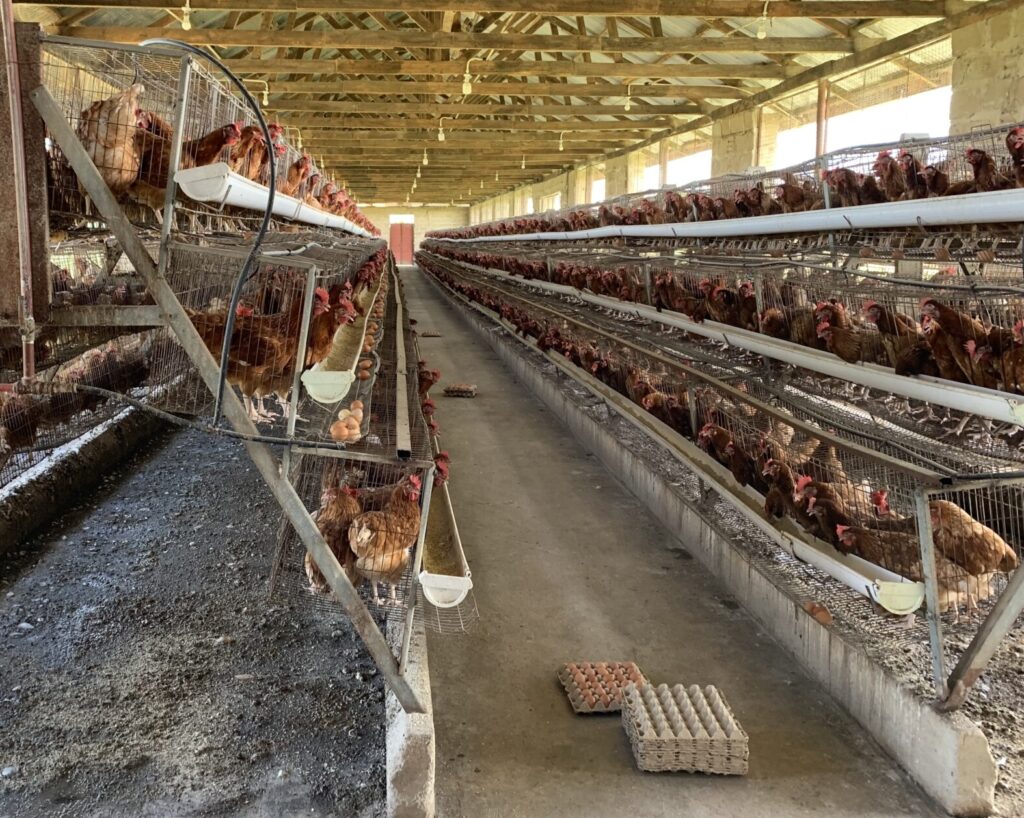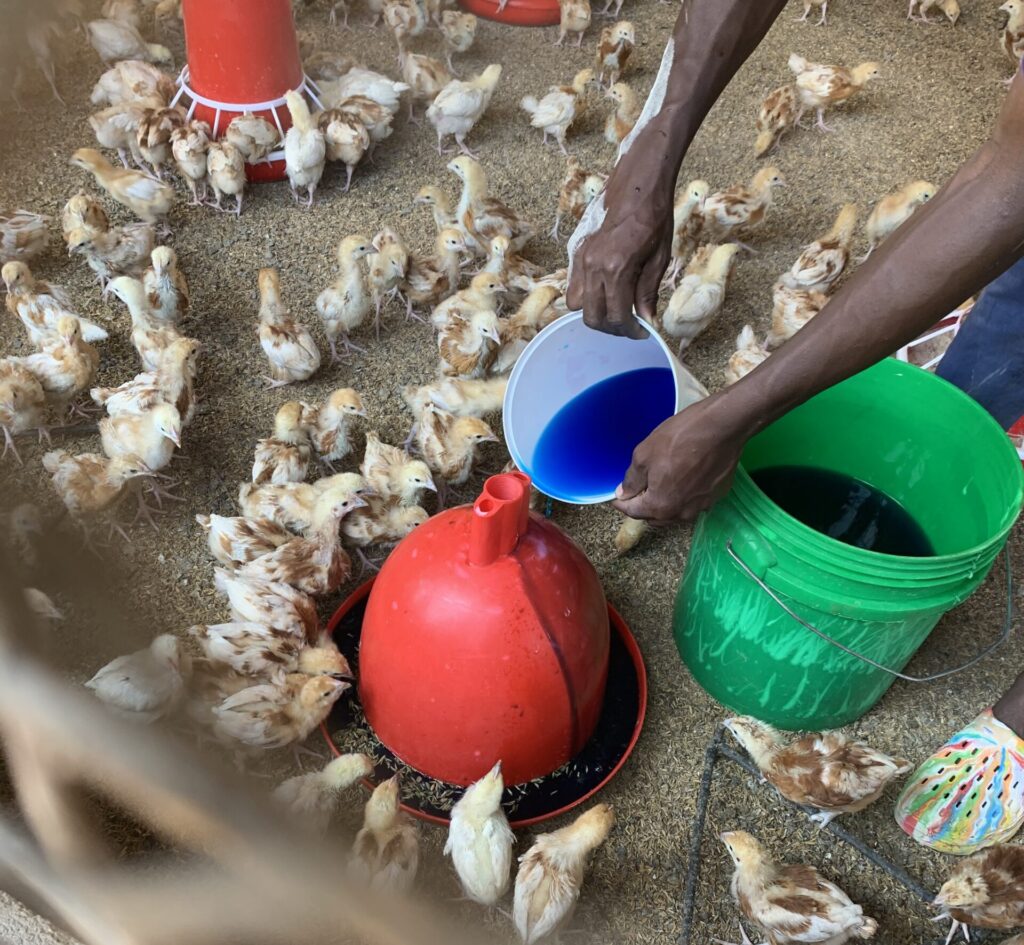Reducing the use of antibiotic growth promoters (AGPs) on poultry farms in Georgia
Context
Georgia’s National Action Plan (NAP) was developed in 2017 to define a unified policy against antimicrobial resistance. This strategy is being implemented in a coordinated manner by the Ministry of Health (MOH) and the Ministry of Environmental Protection and Agriculture (MEPA). Since then, huge strides have been made in the implementation of actions to control the development and spread of AMR in the human health sector Georgia. These include the implementation of modern methods of infection prevention and control (IPC), strengthening the AMR surveillance system, and participating in important AMR surveillance networks such as the Central Asian and European Surveillance of Antimicrobial Resistance Network (CAESAR), and the Global Antimicrobial Resistance Surveillance System (GLASS).
Despite strides made in the human health sector, gaps remain in implementing the NAP in the animal sector. Georgia lacks a nationwide surveillance system for monitoring AMR and antimicrobial use (AMU) in the animal sector, there is no direct ban preventing the use of antimicrobials as growth promoters in feed and there is little oversight of the use and sale of antimicrobials. The Ministry of Health collects data on overall quantities of antimicrobials imported into the country, but it is not possible to distinguish use in the veterinary sector from the human sector. Veterinary pharmacies, in contrast to medical pharmacies, can sell antibiotics without a prescription, and business operators and private veterinarians are not required to report this information. Few interventions have been implemented to reduce use of antibiotic growth promoters (AGPs) among veterinarians and farmers.
Problem
The use of AGPs in feed is currently not banned, regulated or monitored. Thus, many farmers continue to use AGPs indiscriminately (on top of antibiotics also widely used for disease prevention). Such antimicrobial use is not prudent and can contribute to the selection and spread of antimicrobial resistance.
Project overview
This project is the first attempt to engage poultry farmers in Georgia together with farm veterinarians to demonstrate that eliminating the use of antibiotics as growth promoters on broiler farms in Georgia does not compromise animal welfare, productivity and farm income, provided that certain measures (eg increasing biosecurity) are taken within the farms.
This project includes the following components:
- A baseline data collection on antimicrobial use (AMU)
- A randomized controlled trial to measure the effect of removing AGPs on productivity parameters and more broadly on farm economics
- Qualitative assessments to understand acceptability, feasibility and likelihood for adoption of phasing out AGPs
- Capacity building at the State Laboratory of Agriculture (SLA) so that the laboratory is able to appropriately conduct antimicrobial susceptibility testing (AST), and residue-testing
Outcomes
Findings from this project will be used to develop an amendment for normative acts and will be submitted to the government for approval. Results will also be used to develop a standard operating procedure (SOP) to guide dissemination to the wider community of farmers to show them that poultry can be raised in a Georgian context with reduced quantities of antibiotics, and to support uptake in the poultry industry. Project findings will also inform the barriers and facilitators of uptake among other farms to reduce the use of AGPS and welcome antibiotics, and non-participating farmers will be invited to visit participating farms, to learn from their experiences.
Facts
Region: Europe
Sector: Terrestrial and Aquatic Animals
Country: Georgia
Type: Project
Country partners: Ministry of Environmental Protection and Agriculture (MEPA), Georgia, State Laboratory of Agriculture (SLA)
Timescale: 1st February 2022-31st January 2026
ICARS funding: 566,019 USD
ICARS Science Team



Resources
Share
Share this project on socials



